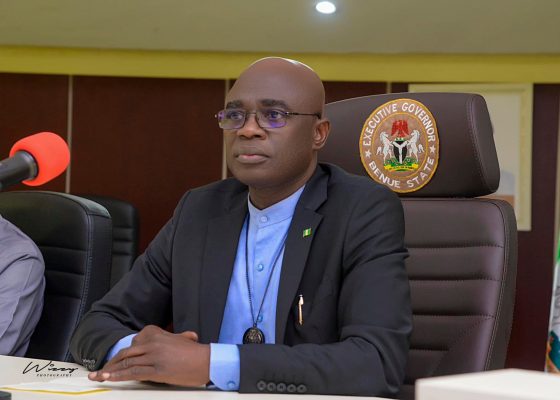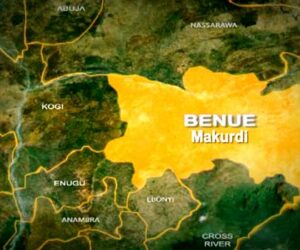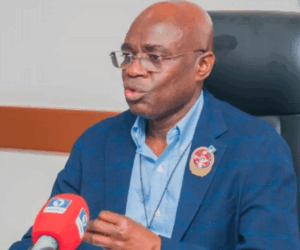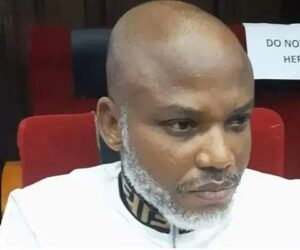In Igbo tradition, there is a belief that a child’s destiny is determined before birth, an idea reflected in the scriptures, where prophets like Jeremiah and Moses, hesitant in their calling, were reminded by God: “Before I formed you in the womb, I knew you.” This divine sense of purpose can be seen in the life and leadership of Fr. Hyacinth Alia, the Governor of Benue state.
Before entering politics, Fr. Alia served as a Catholic priest, ministering to the most vulnerable in society. That calling now shapes his governance. Since assuming office, he has carried the same spiritual conviction from the altar to the statehouse, focusing on equity, justice, and rural development.
A Divine Call to Leadership
Governor Alia did not emerge by accident. His journey from the pulpit to politics has been marked by purpose, sacrifice, and service. As a priest, he witnessed firsthand the suffering in rural communities—experiences that now drive his policies. His transition into politics wasn’t just a career shift; it was an extension of his ministry.
From his earliest days in office, Governor Alia has shown that leadership is not about comfort zones but about transforming lives. His rise reflects the biblical examples of Jacob, Ruth, Hannah, and Rachel—individuals who refused to settle until they received their breakthrough.
Prioritising the People: From Policy to Action
Governor Alia wasted no time in launching his vision for Benue state. Recognising that diplomacy alone won’t solve the people’s problems, he opted for bold actions. His policies are focused on delivering justice and equity, especially to rural dwellers who have long been neglected.
One of his notable initiatives is the crackdown on alcohol abuse, a social vice he identified as a barrier to youth productivity. He has also banned public drinking during working hours and discouraged excessive night celebrations that, he believes, expose communities to external threats and insecurity.
Social Reforms and Youth Empowerment
Fr. Alia’s government made headlines by initiating reforms that directly touch the lives of the people. These include reducing bride prices to promote marriage and family stability, reviving sports infrastructure, including stadiums, funding youth initiatives, and providing transport solutions to ease access to employment and events.
His focus on the Internally Displaced Persons (IDP) camps has also been groundbreaking. He became the first Nigerian governor to deploy drone surveillance technology to monitor IDP camps and surrounding communities for safety and better resource management.
A Stand Against Immorality and Human Trafficking
The governor has also spoken out against the rising cases of human trafficking, organ harvesting, and the exploitation of house helps. He has urged parents to be more vigilant about their children’s associations, dress codes, and lifestyles, especially during school vacations.
He warns that some individuals in religious, medical, and humanitarian professions—despite their public appearances—may be complicit in these heinous crimes, calling them “daylight saints and night-time scorpions.”
Governor Alia further criticised gender department officials who, instead of supporting child welfare, impose exorbitant fees for adoptions, allowing children to age out of adoption systems and languish with the label “motherless.”
Morality with Compassion
While Governor Alia promotes a moral society, he also preaches compassion and transformation. He encourages women and youth to embrace skills acquisition—from fashion design to tech-based vocations—rather than fall into destructive lifestyles. He points to biblical figures like Mary Magdalene, who turned from a life of sin to become a respected follower of Christ.
Building Infrastructure and Preserving Character
Under the President Bola Ahmed Tinubu administration, Governor Alia has championed capital development, particularly the construction of major roads and bypasses across Benue. Despite his commitment to growth, he has avoided associating with individuals whose lifestyles could compromise his values or the dignity of his office.
A Call to Shared Responsibility
The governor acknowledges that he cannot be everywhere at once—that is why he has appointed commissioners, aides, and local leaders to help carry out his mandate. He reminds all Benue citizens that security, love, and care are collective responsibilities.
In conclusion, Governor Alia represents a new brand of leadership—one rooted in faith, shaped by experience, and driven by compassion. His tenure, still unfolding, serves as a model for how spiritual conviction and political authority can work together to uplift a people.







